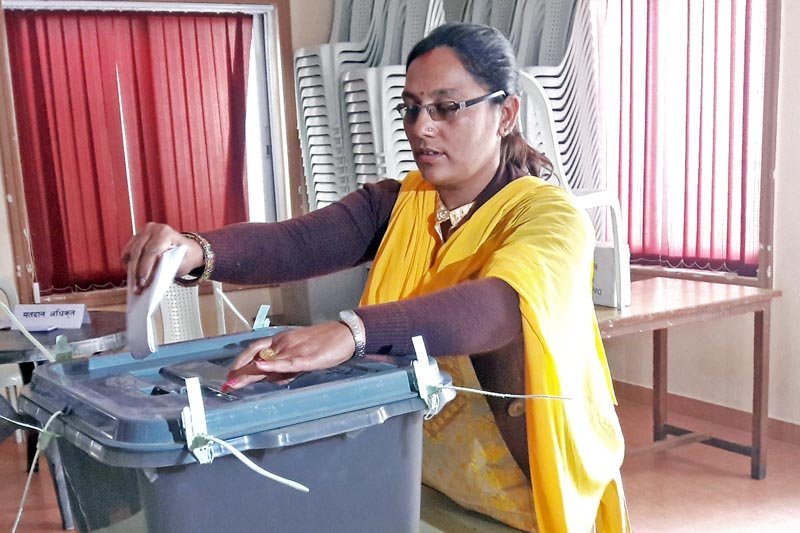Not enough time to educate voters: EC
Kathmandu, April 5
The Election Commission fears relatively high percentage of invalid votes in the local level elections slated for May 14.
The percentage of invalid votes in first-past-the-post elections in the second Constituent Assembly elections held in 2013 was 4.96 per cent (471,826 votes).
Election Commissioner Ila Sharma said she feared that invalid vote percentage could be higher this time, as the EC had very little time to educate voters. “We wanted at least two months to educate voters,” Sharma said and added that some education materials, including big charts, were yet to be prepared.
Sharma said the EC would mobilise 21,000 volunteers to educate voters.
The EC plans to educate voters through interactive street plays, besides informing the youths through mobile applications. Sharma said higher percentage of invalid voters could put a question mark on the legitimacy of polls and the EC would try its best to reduce the percentage of invalid votes.
Educating voters is a challenging task this time, as voters will have to vote for seven candidates. Former election commissioner Birendra Mishra said the EC had to try to reduce the percentage of invalid votes but the data suggested that the EC did not do enough to reduce the percentage. “In 1991 general election the percentage of invalid votes was about 2.5 per cent and in 1999 general election this percentage was 1.5 per cent. EC should have reduced the percentage of invalid votes in subsequent elections,” he added.
Spokesperson for the EC Surya Prasad Sharma said the EC’s efforts to educate voters might not be enough and other stakeholders, particularly political parties and candidates, should also intensify their efforts to educate voters.
Former chief election commissioner Neil Kantha Uprety said the EC had run voter education programme for three months before polls for the second Constituent Assembly in 2013. He added that though voting was less complex that time the percentage of invalid votes reached almost five per cent. “This time the electoral process is more complicated. The EC should try harder to reduce the percentage of invalid votes,” Uprety added.
He said there were over 8.5 million first-time voters who needed more education about the electoral process.
Senior Vice Chairman of National Election Observation Committee Kapil Shrestha said risk of invalid vote percentage was high also because of the uncertainty surrounding the local polls. “People are confused whether the polls will be held on time and whether or not polls will be held in Madhes,” he added. He said had the parties given enough time to debate the constitution before it was promulgated, it would have created enough awareness in society.
READ ALSO:






